Is Solar Power Worth the Hype? Let's See Its Pros and Cons
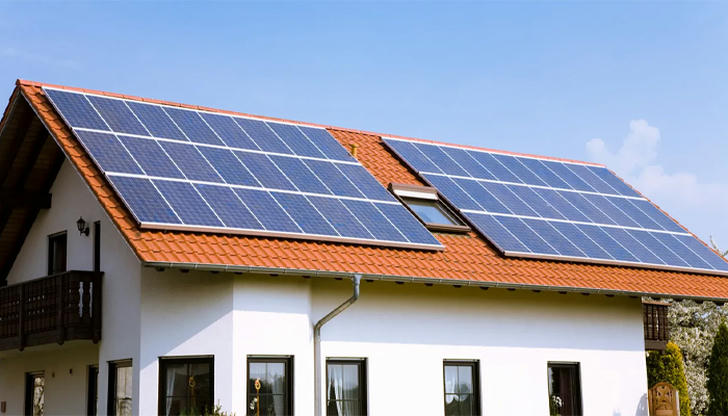
These days, solar power is becoming increasingly popular, with both big companies and individual homeowners opting to incorporate solar energy into their buildings and homes.
But while solar power is a renewable and environmentally friendly energy source, there are several things to consider before making the switch. Even though top solar companies make the installation process easier, it's still a detailed and lengthy process with many factors to weigh.
If you're thinking about reducing your environmental footprint and cutting down on your electricity bills by adding solar power to your home or business, our guide on the pros and cons of solar energy can help you decide if it's the right choice for you.
What is Solar Energy?
Solar energy is generated by converting sunlight into electrical or thermal energy. Solar panels are equipped with photovoltaic (PV) cells made from semiconductor materials like silicon. These cells absorb sunlight particles, called photons. When photons hit the panel, they release electrons from the atoms in the semiconductor material, creating an electric current that can be used to power your home.
Solar panels can be installed in any location with plenty of sunlight, such as rooftops or open fields. The more sunlight the panels receive, the more electricity they can generate. While the sun's energy is abundant and can be harnessed to power our world, the main question for most people is whether solar energy is cost-effective. Here's a look at the pros and cons to help you understand what solar energy could mean for you.
Pros and Cons of Solar Energy
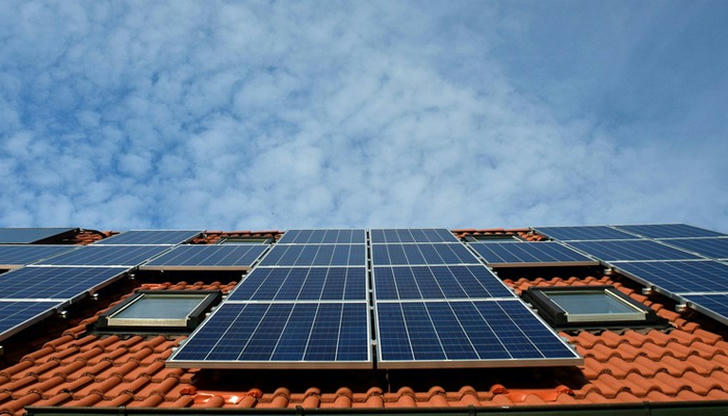
Advantages of Solar Energy
1.Renewable Energy Source
One of the biggest advantages of solar energy is that it's a renewable resource. Unlike fossil fuels, which are in limited supply and release harmful emissions when burned, solar energy doesn't deplete natural resources or pollute the environment. Using solar power can significantly reduce our dependence on fossil fuels and help protect the planet.
2.Reduces Electric Bills
By generating your own electricity with solar panels, you can reduce or even eliminate your monthly electricity bills. With the rising cost of electricity, this can lead to significant savings over time. Many homeowners find that the initial investment in solar panels pays off within a few years due to these savings.
3.Energy Independence
Solar panels can provide energy independence, especially when paired with solar batteries that store excess energy for use at night or during power outages. This means you won't be as reliant on the grid and can enjoy a steady supply of electricity even during emergencies.
4.Increases Home Value
Homes with solar panels are often valued higher than those without. According to the National Renewable Energy Laboratory, every dollar saved on energy bills through solar increases a home's value by $20. Additionally, homes with solar panels tend to sell faster and at a higher price, making them a great investment.
5.Long-Term Savings
While the upfront cost of solar panels can be high, the long-term savings on electricity bills can be substantial. Most homeowners break even on their investment within six to ten years, and since solar panels typically last 25 to 30 years, you can enjoy many years of savings after the initial payback period.
6.Low Maintenance
Solar panels require minimal maintenance once installed. As long as they're kept clean and free of debris, they should continue to function efficiently for many years. Professional cleaning and inspection services are available, but they are typically needed only once a year and are relatively inexpensive.
7.Benefits the Community
Through a process known as net metering, excess electricity generated by your solar panels can be sold back to the utility company. This not only reduces your utility bills but also helps decrease the community's reliance on fossil fuels, contributing to a cleaner environment.
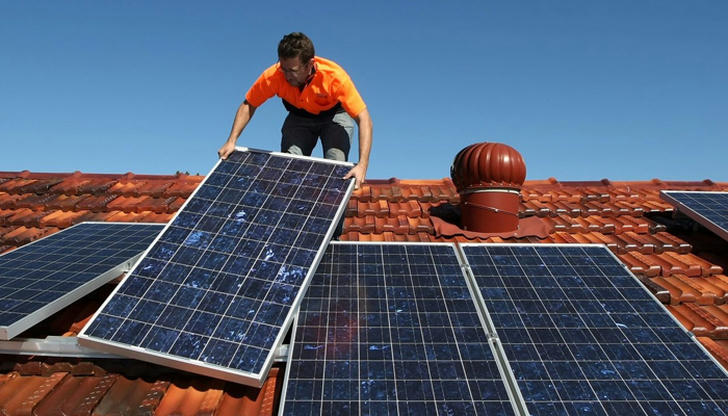
8.Versatility
Solar energy can be used in a variety of applications beyond just powering homes. It's useful in remote areas where grid power is unavailable, for powering satellites, boats, and even as a backup power source during emergencies. Its versatility makes it an attractive option for many different needs.
9.Rising Power Prices
With the cost of electricity steadily increasing, solar power offers a way to keep your energy bills under control. Net metering allows you to sell excess energy back to the grid, turning rising electricity prices to your advantage.
10.Technological Advancements and Decreasing Costs
Solar technology has advanced significantly in recent years, making solar panels more efficient and affordable. As technology continues to improve, the cost of solar panels is expected to decrease further. Many state and federal incentives also help reduce the upfront cost, making solar power more accessible to a wider range of consumers.
Disadvantages of Solar Energy
1.High Initial Costs
Although the cost of solar panels has decreased over the past decade, the initial investment is still significant. On average, a complete solar system installation for a home can cost around $18,000 before any incentives or tax credits. This can be a barrier for many consumers.
2.Sunlight Dependency
Solar panels rely on sunlight to generate electricity, which means their efficiency can be affected by weather conditions and geographic location. Areas with less sunlight or frequent cloudy days may not produce as much energy. However, solar batteries can store excess energy for use during cloudy periods or at night.
3.Installation Challenges
Installing solar panels can be complex and may require professional help, especially when it comes to wiring the panels into your home's electrical system. The process can also involve getting permits and dealing with local regulations, which can be time-consuming and complicated.
4.Space Requirements
Solar panels need space to be installed, and the amount of space required depends on how much energy you want to generate. For some homeowners, finding enough roof space or a suitable location for the panels can be challenging, especially in densely populated areas.
5.Expensive Energy Storage
Solar batteries, which store excess energy for use when the sun isn't shining, can be costly. Prices vary depending on the type and size of the battery, with residential lithium-ion systems ranging from $7,000 to $14,000. While these batteries can enhance your energy independence, the high cost can be a drawback.
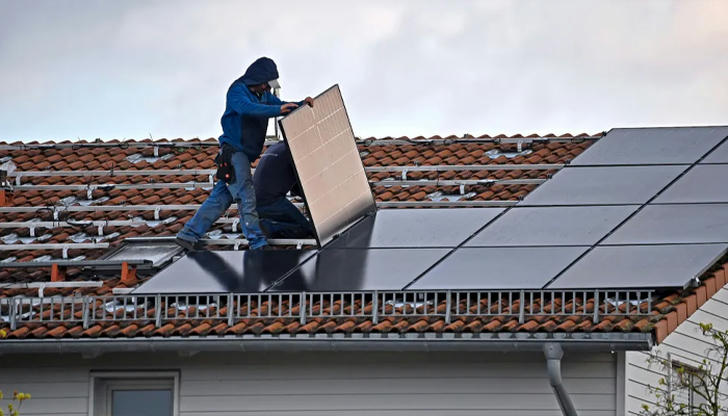
6.Environmental Impact of Manufacturing
The production of solar panels has environmental impacts, including the release of greenhouse gases during manufacturing and the mining of raw materials. However, solar panels typically offset these emissions within one to four years of use, making them a more sustainable option in the long run.
7.Difficulty with Relocation
Once installed, solar panels are not easy to move. If you decide to sell your home, uninstalling and relocating the panels can be expensive and time-consuming. Therefore, it's often better to consider them a permanent investment in your current property.
8.Material Scarcity
While sunlight is abundant, the materials needed to produce solar panels, such as silicon and rare metals, are limited. The availability of these materials can impact the cost and production of solar technology.
9.Limited Recycling Options
Solar panels contain materials that can be harmful to the environment if not disposed of properly. Currently, recycling options for solar panels are limited, which can pose a challenge for sustainable disposal.
How Sustainable is Solar Energy?
Solar energy is much more sustainable than fossil fuels, which are finite and harmful to the environment. While the production of solar panels does have some environmental impact, the benefits of using solar power far outweigh these downsides. Solar panels pay for themselves in terms of greenhouse gas emissions within a few years of use, and they can be recycled to some extent, though more infrastructure is needed for large-scale recycling.
Who Should Use Solar Energy?
Solar energy is suitable for both large-scale industries and individual consumers who can afford the initial investment. Homeowners looking to reduce their electricity bills, increase their property value, and contribute to environmental sustainability can benefit greatly from solar power. Even those without the upfront capital can explore solar loans and incentives to make solar energy more accessible.
Is Solar Energy Worth the Cost?
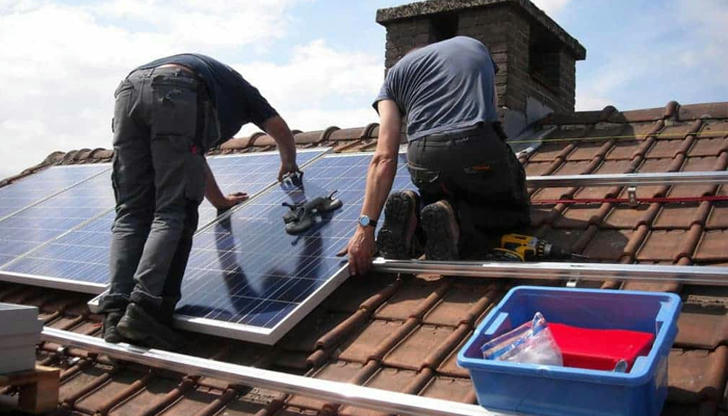
In most cases, yes, solar energy is worth the cost. However, the feasibility of solar energy depends on various factors, including your location, available incentives, net metering options, and your financial situation. While the benefits of solar energy often outweigh the drawbacks, it's important to evaluate your specific circumstances before making a decision.
Bottom Line
The advantages of solar energy significantly outweigh the disadvantages. Although it may take several years to recoup the initial investment, solar power can lead to substantial savings on electricity bills and provide numerous environmental benefits.
With the ongoing advancements in technology and decreasing costs, solar energy is poised to become an even more attractive option in the future.
Future Outlook for Solar Energy
The sun is a powerful and reliable source of energy, and the growth of solar power is expected to continue. The decreasing cost of solar panels, coupled with technological advancements, is making solar energy more affordable and efficient. This trend is likely to drive the continued adoption of solar power in both residential and commercial sectors, solidifying its role as a key player in the energy landscape for years to come.
